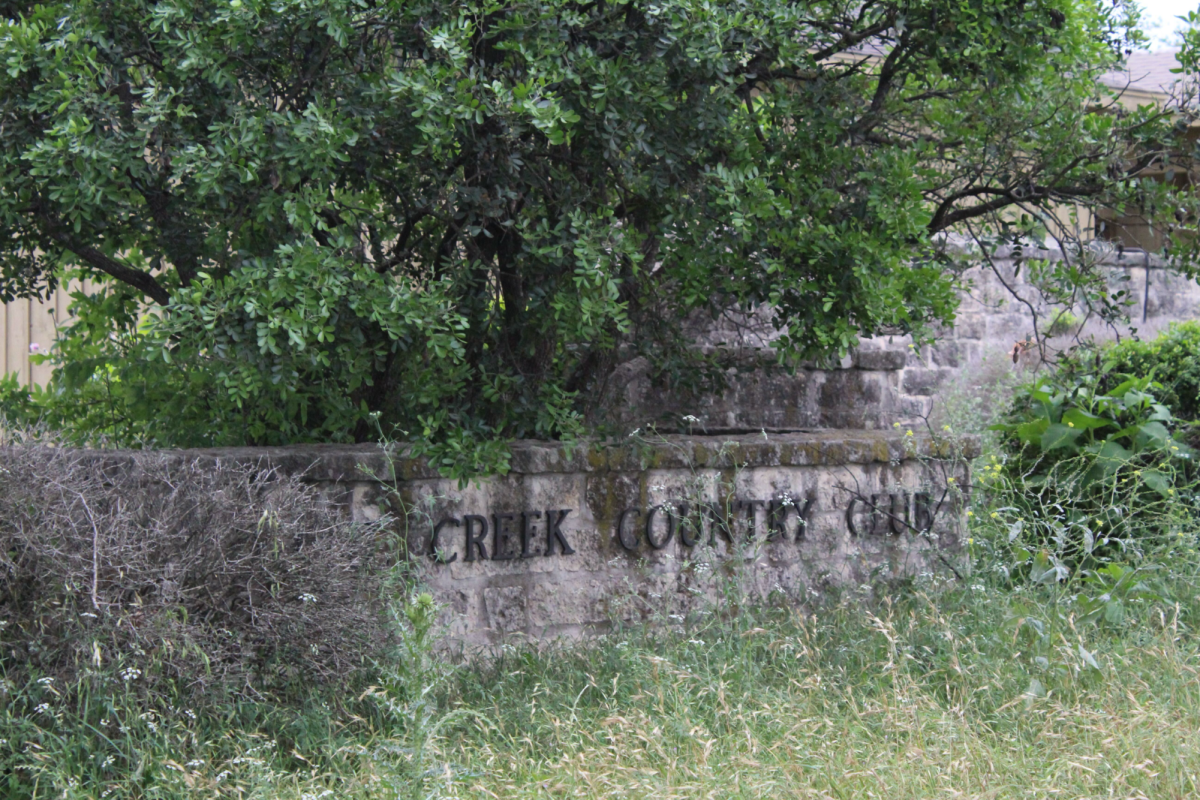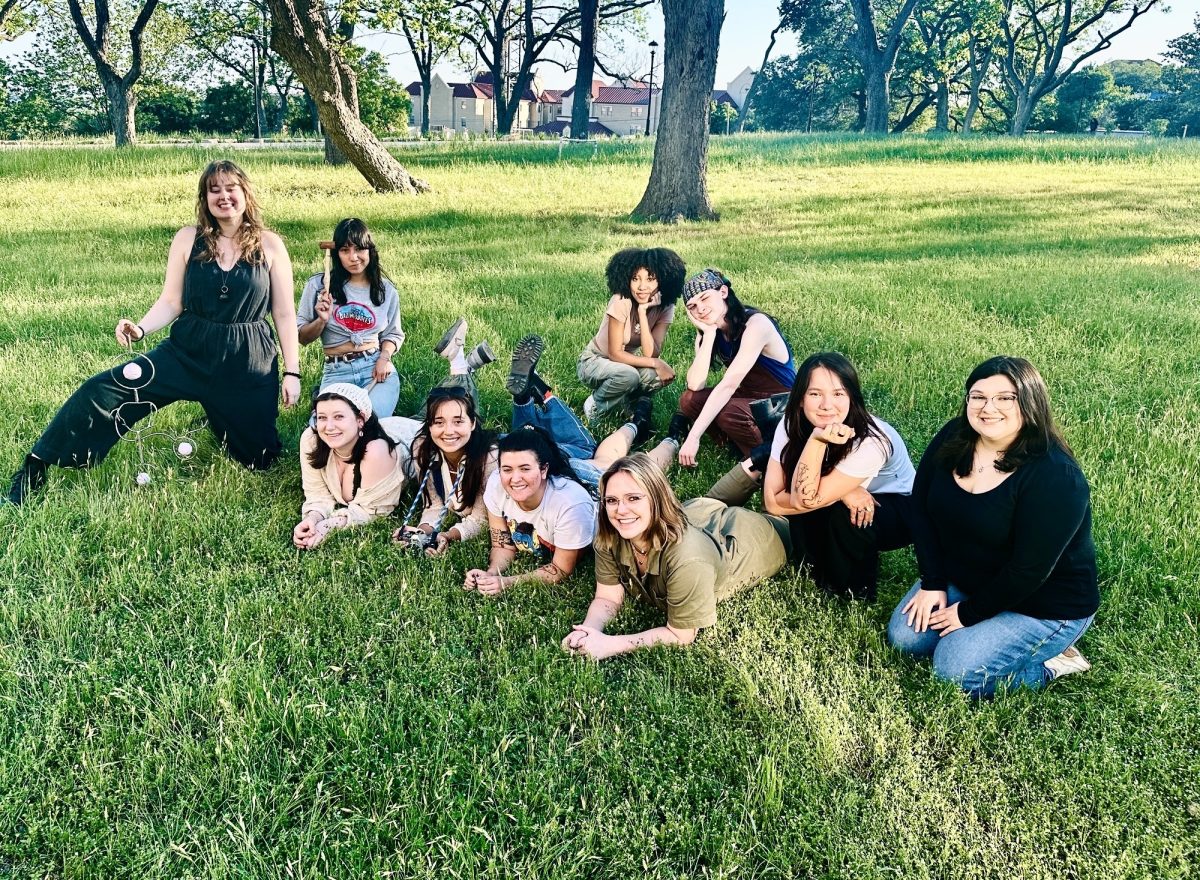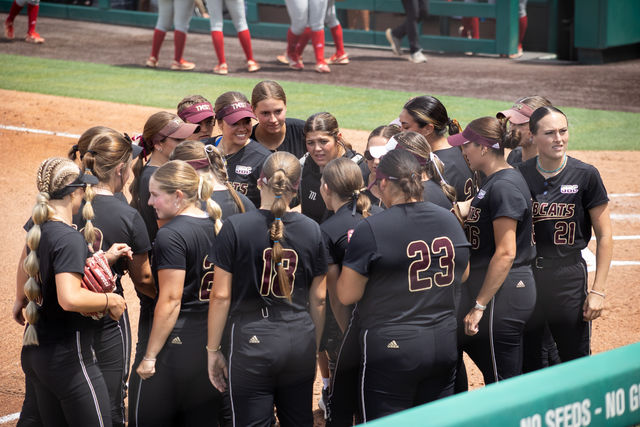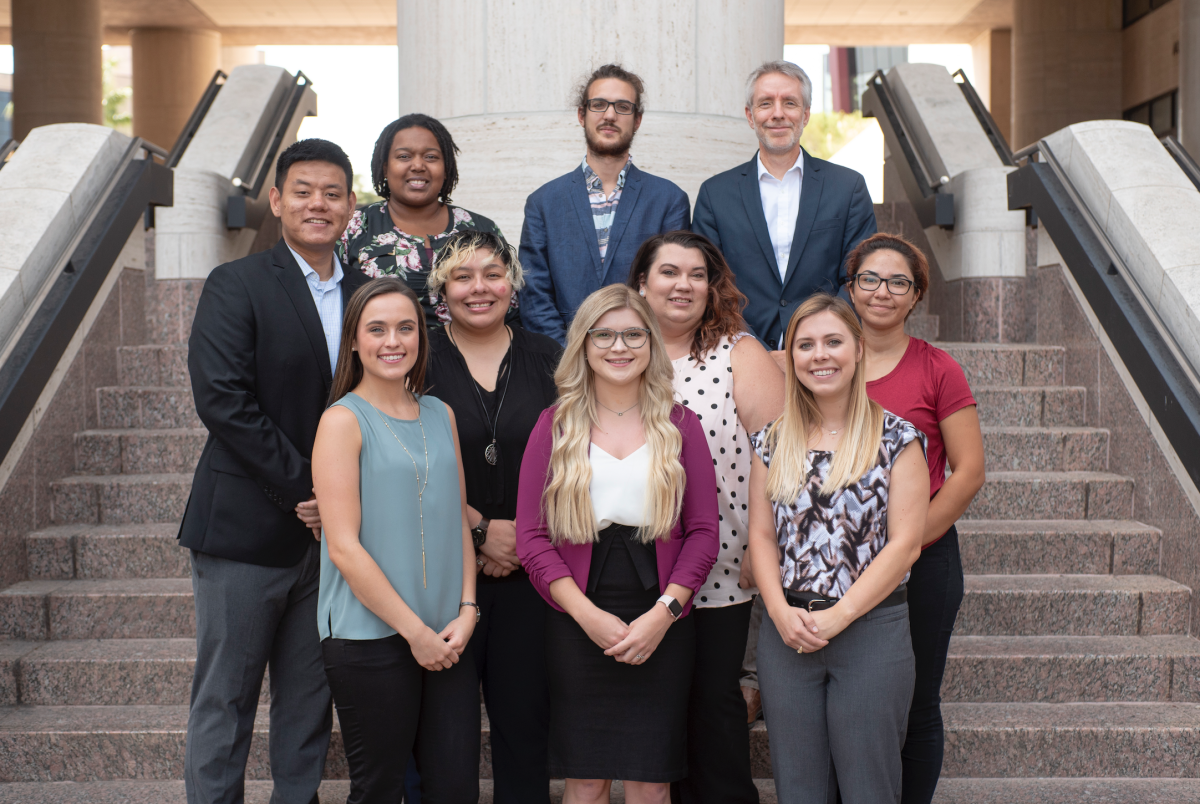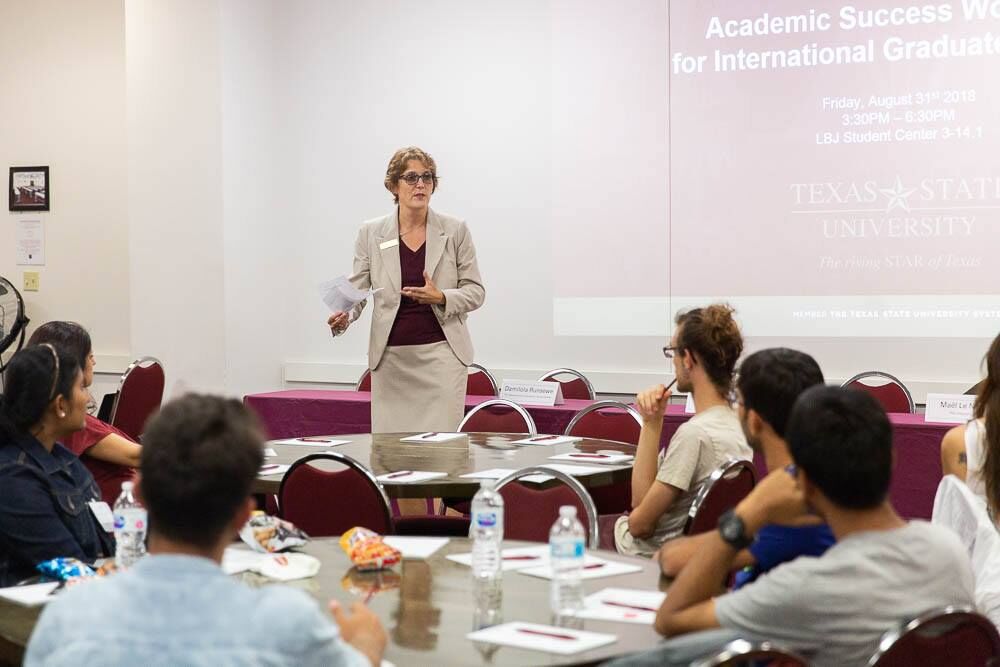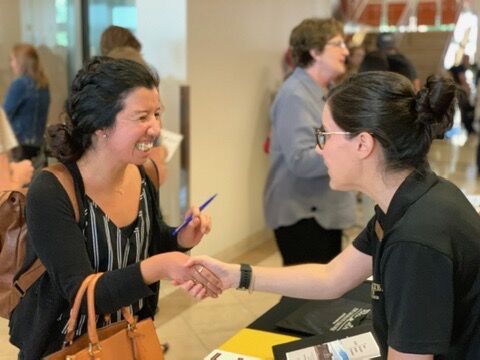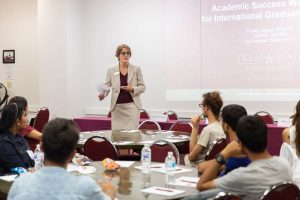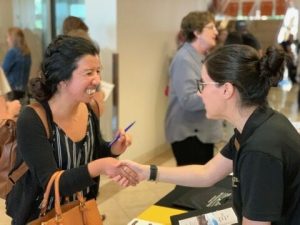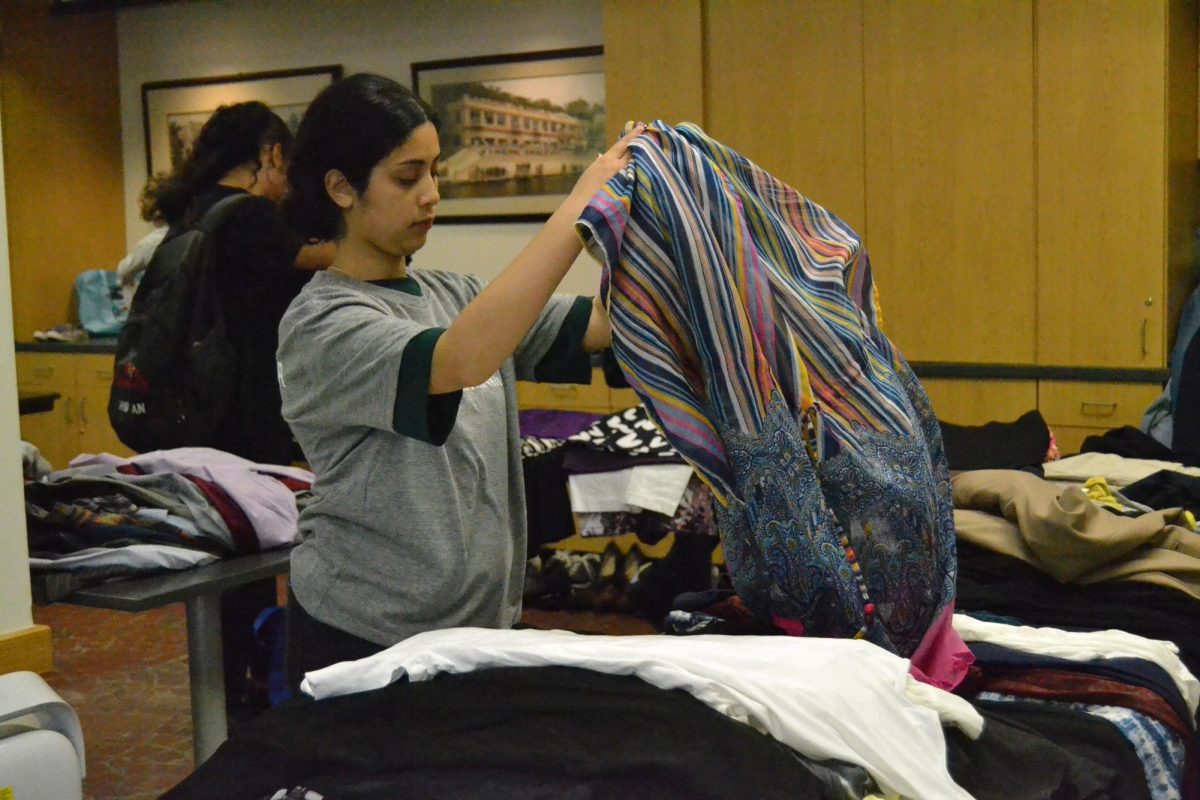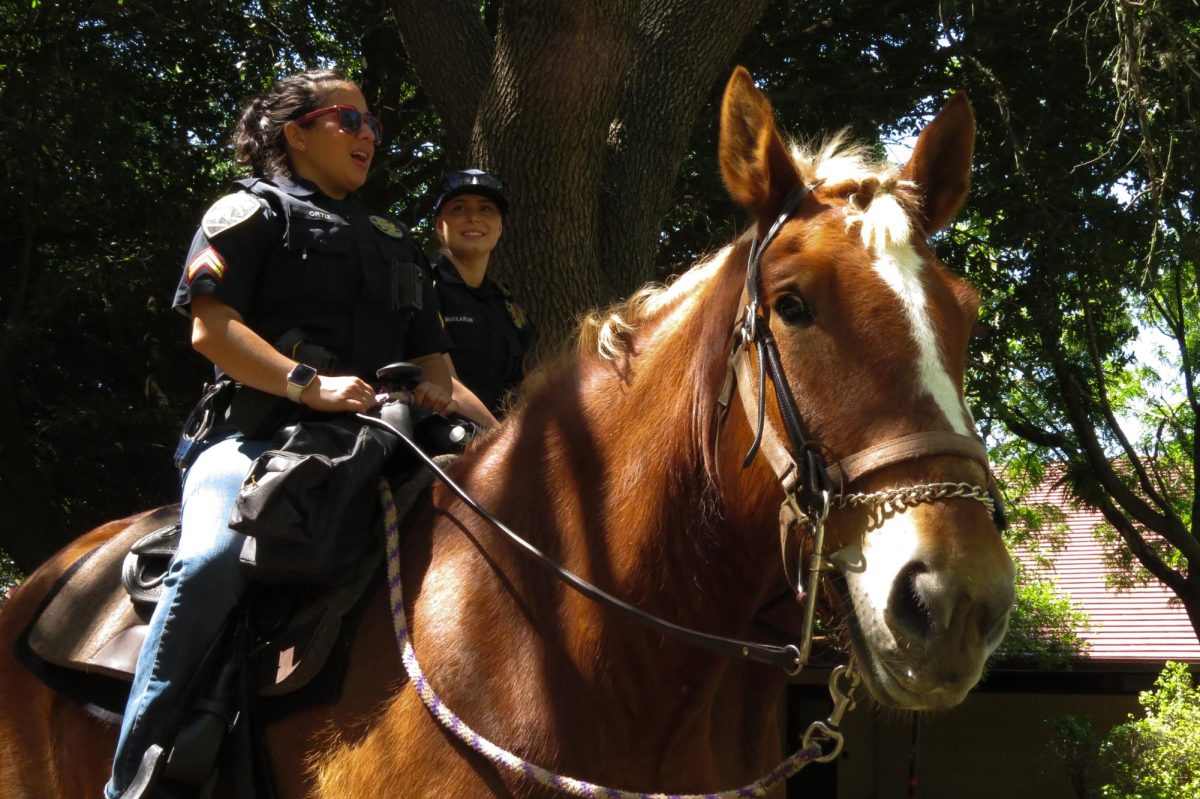With a lengthy application process and over 100 degree programs to choose from at Texas State alone, stepping on the path toward graduate school has served as a daunting task for some students.
However, The Graduate College at Texas State has lined up a wealth of virtual resources this semester to ensure every student with hopes to continue their education has a chance.
“Texas State is very interested in making sure that students are not put at a disadvantage during the application process just because they’re not familiar with what that application process is,” says Dr. Eric Paulson, associate dean of The Graduate College.
Between writing supplemental essays and crafting resumes, the college’s graduate counselors and recruiters will help students throughout the process to ensure they put their best feet forward.
Throughout the semester, information sessions and “Grad Chats” will take place on the school’s website, hosted by Bobcat alumna Dani Artaza, the recruiting coordinator at The Graduate College.
Artaza earned her bachelor’s and master’s degrees from Texas State and, after a few years working across the country, decided to return to The Graduate College to help students continue their own educational journeys. She urges students interested in attending graduate school to first think about their career goals and work backward to select a degree.
“I try to get people to think about what their career aspirations are,” Artaza says. “Once they figure out where they want to be in the professional world, what sort of degree and experience can help you get to where you want to be?”
Once students have this end goal in sight, they may still wonder how to find the programs that fit their specific needs, especially with so many graduate schools in the U.S. to choose from. Dr. Andrea Golato, dean of The Graduate College, believes the best educational guides are right under students’ noses.
“Every department has a graduate adviser, and it is that person’s job to help students navigate the landscape,” Golato says. “They love talking about graduate programs. Just make an appointment and say, ‘I’m interested in this topic, what are some good graduate programs?’”
Golato also stresses that within their specific fields, graduate students have the opportunity to tailor interests toward more specific degree plans and courseloads than they were offered in their undergraduate studies.
For Karan Kumar, a second-year graduate student in athletic training, the newfound specificity in his courses and assignments is the highlight of his graduate school experience.
“Undergrad is very structured; you show up to a class and are told, ‘This is what you learn, and this is how you’re gonna learn it’,” Kumar says. “But in graduate school, I feel like you’re given a lot of freedom to choose what you learn about.”
As students search for specific interests among a wide range of schools, Paulson reminds students of one key step in choosing a school that goes beyond interests and career opportunities: Support.
“There should be support, from information down to support to apply,” Paulson says. “Also, once you get in, what kind of funding is there, what kind of professional development is available for you in the program?”
Paulson believes The Graduate College at Texas State serves as a prime example of an ideal graduate school support system, with the school planning to host several information sessions, one of which is a virtual Graduate and Professional School Fair on Feb. 9 via Zoom.
Students planning to attend are encouraged to ask important application questions, take notes, make meaningful connections with recruiting staff and browse different programs from not just Texas State but schools across the country.
Both Golato and Artaza urge students with a passion for their subject area to explore graduate degree options with one of the graduate school’s many advisers.
“You want to start early,” Golato says. “It’s kind of like going shopping; before you buy any expensive item, you look at it from all different angles, making sure this is what you want to do, where you want to go.”
And although graduate school may not be an ideal choice for every graduating senior, The Graduate College at Texas State hopes to foster the idea that earning a graduate degree can serve as a fulfilling, community-building and career-catapulting experience for all.
To learn more about The Graduate College at Texas State, visit its website.

